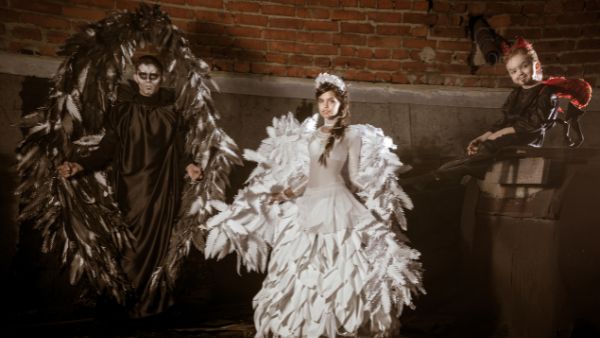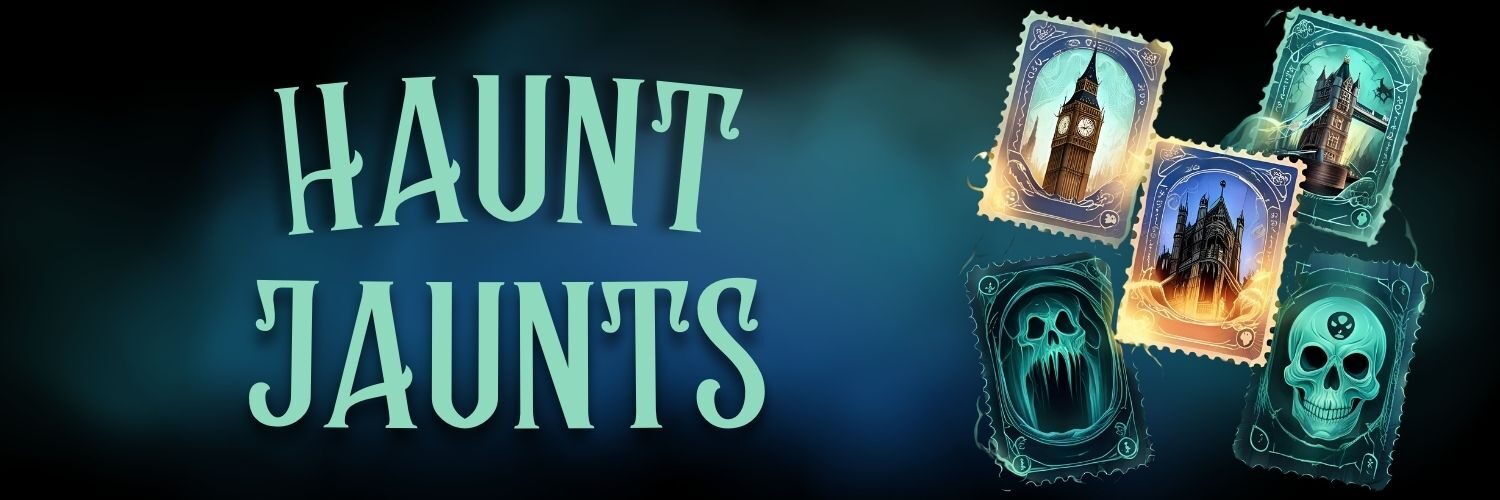
After I accepted Victoria Jaye’s pitch for an article examining whether Amityville and the Bell Witch were demonic or not, she also mentioned letting her know if I had any topics on demons I wanted someone to cover. As a matter of fact, I did, so I pitched it to the demon folklorist. I figured if anyone might know the answer, she would.
Luckily, she accepted and ran with it. I hope you enjoy reading another of Victoria’s superbly crafted guest posts as much as I did.
Are Demons Always Bad, Or Are There Any Good Ones?
By Victoria Jaye
The answer to that question depends on who you ask. Christianity, which is monotheistic with one god, will tell you absolutely not: all demons are evil, period. Demonolatry is a religion that includes the worship of demons. From their point of view, demons are benign figures who can teach us much about the world, seen and unseen (Connolly 14).
Demons and Christianity
Christianity tells us that demons can do many things, most of them having to do with maiming/harming humans, such as, “caus[ing] suicide (Mark 9:22), make a person sick or weak, even blind, deaf and/or dumb (Luke 13:11/Matthew 12:22).
They can cause insanity (Matthew 17:15) and fits of jealousy (Numbers 5:14, 30) or grip a person with fear so intense that they feel paralysis (2 Timothy 1:7).
They can possess people and animals (Matthew 8:28- 34, Mark 5:11-13), sometimes many at once can inhabit a body (Luke 8:2, Mark 5:8-13).
They are inhumanly strong, able to break the chains that bind them while inside a human body (Mark 5:3–4).
Demons are described as having all the abilities they had before as angels, even to appear as angels of light (2 Corinthians 11:14), if they were indeed angels at one point.
They are said to have stores of nearly infinite knowledge including insight to people past, present, and future, using what they know to corrupt humans through their own sins” (Finlay 1999: 46).
In Christianity, Satan (who was once an angel named Lucifer) fought against God at some point in time and lost, which left him on earth with other fallen angels, which cause fear, pain, and destruction for humans (who are loved above all other of God’s creations). God and his angels are pitted against Satan and his demons in the ultimate good versus evil fight.
Demons and Demonolatry
Demonolatry focuses on the self in terms of self-worship along with demon worship, believing that there is no black-and-white good and evil. Instead, there are shades of gray (Connolly 11, 15). Demons, to them, symbolize the darker sides of nature which are misunderstood and therefore, feared (Connolly 19).
Demonolaters believe there is no heaven or hell, just reincarnation and science (Connolly 11). They form personal connections to these worshipped deities, viewing them as teachers and friends (Connolly 13,14).
Though magick is certainly a part of this religion, it is dependent on the believer whether magick is part of their practice (Connolly 7). Satan, in their practice, is the source of all energy while demons are parts of that energy (Connolly 14).
Devils signify evil as Christianity understands it while demons inhabit the middle ground (Connolly 20). Bad experiences with such entities are usually because that person is doing something wrong or not absorbing the lesson it is trying to teach one correctly (Connolly 27).
Good or Bad? The Verdict on Demons
As a demonic folklorist, I handle experiences of demons and the narratives that are told from these experiences. My research has yielded that demons are never friendly or helpful to humans without eventually turning on those using their demonic abilities for personal gain.
I think that what demonolaters are worshipping is something other than the conventional demon, perhaps jinn, fairies from Ireland, or a similar creature. Which is not to be mistaken for a genie. Jinn have never granted wishes; that is a Western concept of a being that is similar to humans in behavior/free will but also has abilities that transcend humans (Connolly 28). Jinn, in general, are more benevolent.
But that is a personal theory, especially since demonolaters are naming demons from the Bible/extra-Biblical sources. However, it is possible that evil jinn or shaytans could be the same thing as demons in Christianity since they both share the same Abrahamic ancestry.
Entities that were once worshipped as gods do not seem to display the same type of malevolence towards humans as demons—perhaps that is what demonolaters are in contact with. The demons I have mapped into a classification system were unfriendly to humans from the get-go; people’s senses told them something was wrong long before phenomena started to prove it.
My professional opinion is that a true-blue demon is marked by feeling as if one is in the presence of malicious evil. An evil like that prompts people to want to run, not worship in awe of their power or feel they are teachers/friends.
I will also say that the supernatural realm is mysterious, and I absolutely could be wrong, but I believe demons are always evil (if they are indeed a demon, that is.)
Check-In
What do you think? Do you think demons are always bad, or could there perhaps be a good one in the bunch somewhere?
References
Connolly, S. 2006. The Complete Book of Demonolatry.
Finlay, Anthony. 1999. Demons!: The Devil, Possession, and Exorcism.
Jaye, Victoria, “In the Presence of Evil: Demonic Perception Narratives” (2021). All Graduate Plan B and other Reports. 1563. https://digitalcommons.usu.edu/gradreports/1563.
Guest Contributor Info

Victoria Jaye is a supernatural folklorist who specializes in the demonic. She graduated from USU with a Master’s in folklore; her thesis was a classification system of demonic phenomena organized by the senses. Her interests include demons, folklore/mythology, and horror movies. Visit her at demonfolklorist.com.
Got an idea you’d like to submit? We’re always looking for quality infotaining posts about true crime, horror, and the paranormal –or some blend thereof. Visit our Writers Wanted page for submission details. We’d love to have you join our Skeleton Crew!
P.S.
Yes.
That’s the answer to that question we know you’re wondering about. We do pay. Not a lot. Don’t get excited. But we believe in paying writers for their time and energy. You’ll find complete details on the Writers Wanted page.

Kind of reminds me of those entities/beings who were co-opted into Buddhism as wrathful or protective deities. They weren’t demons, but they were believed to have significant powers/influence. Basically, they were kind of like local deities, similar to what existed in ancient Greece.
Oooh! That’s super interesting! I’m not really familiar with Buddhism beyond the very basics so I’m glad you shared this!
https://www.learnreligions.com/wrathful-deities-of-buddhism-450162
https://en.wikipedia.org/wiki/Wrathful_deities
https://tricycle.org/trikedaily/wrathful-deities-buddhism/
Hey thanks! Saved me some time. lol